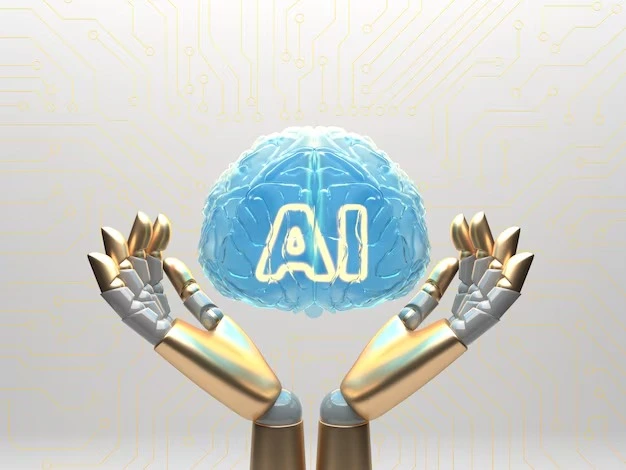The Future of AI: Trends to Watch in 2025
Published on February 21, 2025

Author: Yiga Richard
Artificial Intelligence (AI) is rapidly evolving, reshaping industries, and revolutionizing the way businesses operate. As we move into 2025, AI-driven innovations will continue to push boundaries, enhancing automation, decision-making, and user experiences across various sectors.
In this blog, we’ll explore key AI trends that will define the future of technology and business, along with how organizations can leverage them for success.
1. AI-Powered Hyperautomation
Automation has been a game-changer for businesses, but in 2025, AI will take it to the next level with hyperautomation—the integration of AI, machine learning, and robotic process automation (RPA) to eliminate manual workflows and enhance efficiency.
What This Means for Businesses:
- AI will automate complex decision-making, not just repetitive tasks.
- Organizations will use AI-driven chatbots and virtual assistants to improve customer service.
- Businesses that embrace hyperautomation will reduce costs and improve operational speed.
How to Leverage It:
- Identify bottlenecks in workflows and implement AI-driven automation tools.
- Invest in AI-powered customer support to enhance response times and personalization.
- Train employees to work alongside automation for seamless integration.
2. The Rise of Generative AI in Content Creation
Generative AI, including tools like ChatGPT, DALL·E, and MidJourney, is transforming how content is produced. In 2025, businesses will increasingly rely on AI-generated text, images, videos, and even code to streamline workflows.
What This Means for Businesses:
- Content marketing will be AI-driven, reducing production time.
- AI will create realistic synthetic media, revolutionizing industries like entertainment and e-commerce.
- AI-generated code will accelerate software development.
How to Leverage It:
- Use AI-powered content tools to scale marketing efforts while maintaining quality.
- Incorporate AI-driven video and design tools to enhance branding and customer engagement.
- Employ AI for automating code generation and debugging in software development.
3. AI-Enhanced Cybersecurity
As cyber threats become more sophisticated, AI will play a critical role in detecting, preventing, and responding to security breaches in real time.
What This Means for Businesses:
- AI-driven cybersecurity tools will predict and mitigate threats before they occur.
- Machine learning models will identify fraudulent activities and anomalies instantly.
- AI-powered authentication methods (e.g., biometric verification and behavioral analytics) will enhance security.
How to Leverage It:
- Implement AI-driven threat detection to safeguard sensitive data.
- Use AI-based fraud detection to protect transactions and financial systems.
- Enhance security policies with AI-powered risk assessments.
4. Personalized AI in Customer Experience
AI will continue to redefine customer interactions by providing hyper-personalized experiences across different touchpoints.
What This Means for Businesses:
- AI will analyze user behavior, preferences, and emotions to deliver tailored recommendations.
- Conversational AI (advanced chatbots) will provide human-like interactions.
- AI-driven voice and video assistants will enhance customer support.
How to Leverage It:
- Use AI-powered recommendation engines to personalize product suggestions.
- Deploy advanced chatbots that offer real-time, conversational support.
- Analyze customer data to enhance engagement and retention strategies.
5. AI Ethics and Regulation Become a Priority
As AI adoption grows, so do concerns around data privacy, bias, and ethical AI use. In 2025, we will see stricter regulations and a push for responsible AI development.
What This Means for Businesses:
- Companies must comply with AI regulations to avoid legal and reputational risks.
- Ethical AI frameworks will be essential to ensure transparency and fairness.
- Customers will demand more data privacy and ethical AI use.
How to Leverage It:
- Implement AI ethics policies to promote fairness and reduce bias.
- Stay updated on AI governance and compliance regulations.
- Build customer trust by ensuring transparent and responsible AI applications.
6. AI in the Workplace: Enhancing Productivity
AI is reshaping the workforce, assisting employees with data analysis, decision-making, and routine tasks. In 2025, AI will augment human intelligence rather than replace jobs.
What This Means for Businesses:
- AI tools will streamline decision-making by analyzing vast amounts of data.
- AI-driven automation will improve workflow efficiency and reduce human errors.
- Companies will need to upskill employees to work effectively with AI.
How to Leverage It:
- Invest in AI training and upskilling programs for employees.
- Use AI-driven insights for better business decision-making.
- Enhance productivity with AI-powered project management and collaboration tools.
Conclusion
AI is set to revolutionize industries in 2025, bringing automation, personalization, cybersecurity advancements, and ethical challenges. Businesses that adapt to these AI trends will gain a competitive edge, improve efficiency, and drive innovation.
Is Your Business AI-Ready?
To stay ahead in the AI-driven future, start exploring AI solutions that align with your business goals today.